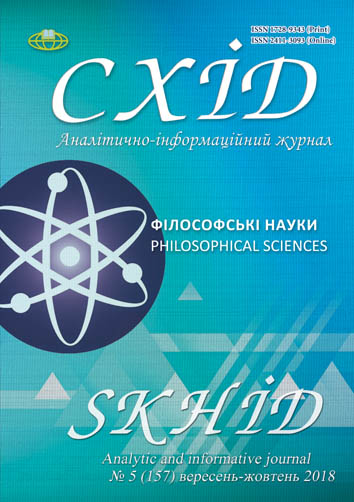The relationship between taste and status conspicuous consumption
DOI:
https://doi.org/10.21847/1728-9343.2018.5(157).147798Keywords:
conspicuous consumption, social status, tastle, impressionAbstract
This research starts with the analysis of conspicuous consumption as a specific means to emphasize one’s social status. As far back as the end of the 19th century Thorstein Veblen developed a theory about a specific class who was characterized by nonproductive activities and specific surrounding - servants, clothing, which is not suitable for work, luxurious furniture. Since that idea was examined many times in various researches during the last century, it appears to be interesting to compare it with the concept of taste, which one cannot help appealing to while choosing anything, especially something that shows one’s status.
The article draws attention to the peculiarities of taste development and its role in choosing possessions according to class preferences. In addition, it emphasizes the importance of the correspondence between possessions and their owner’s status as it guarantees to create a true impression about their social status. That idea has been marked out due to Jean Baudrillard’s researches which defined the dependence of home furniture upon income and belonging to a certain class. The question arises as to what role ‘pure’ taste plays in taste of a whole class. The taste typology by Pierre Bourdieu (the tastes of luxury and the tastes of necessity) enables to analyze the social aspect of taste, in particular the way the taste of a certain social group develops under pressure of existing social preferences and stereotypes as well as the way it impacts on the choice of purchases.
The author concludes that a need may be considered a basis for both kinds of tastes. Whereas in the first case a need is an obvious component of taste development, in the second one it is more difficult to prove that a need to leave an impression on someone is as severe as a need to live.Downloads
References
Baudrillard J., 2001. The System of Objects, Moscow: Rudomino, 168 p.
Bourdieu P., 2005. Distinction: social criticism of judgment. Economical sociology, Vol. 6. Issue 3. Рp. 25-48.
Veblen T., 1984. The Theory of Leisure Class: An Economic Study of Institutions. [online] Available at: <https://gtmarket.ru/laboratory/basis/5890> (Accessed 20.09.2018).
Gorbachev A., 2016. The evolution of the Consumption Categories in the Classical and Postclassical Sociological Theories. Social technologies: actual problems theories and practices, Vol. 71. Рp. 15-22.
Goffman E., 2000. The presentation self in everyday life, Moscow: «KANON-press», «Kuchkovo pole». P. 34.
Kucherenko E. V., 2017. Essense of the notion of demonstrative consumption. Economic Bulletin, Issue 3. Рp.28-36.
Malakhov S. V., 2012. Veblen effect search for status goods and negative utility of conspicuous leisure Journal of institutional studies. Journal of institutional studies, Vol. 4, Issue 3. Рp. 6-21.
Memushi A., 2013. Conspicuous Consumption of Luxury Goods: Literature Review of Theoretical and Empirical Evidences, International Journal of Scientific and Engineering Research, Vol. 4, Issue 12. Рp. 250-255.
Trigg A. B., 2001. Veblen, Bourdieu, and Conspicuous Consumption. Journal of Economic Issues, Vol. 35, Issue 1. Рp. 99-115. DOI: https://doi.org/10.1080/00213624.2001.11506342
Truong Y., 2010. Personal Aspirations and the Consumption of Luxury Goods, International Journal of Market Research, Vol. 52 , Issue 5. Рp. 655-673. DOI: https://doi.org/10.2501/s1470785310201521
Winkelmann R., 2012. Conspicuous consumption and happiness. Journal of Economic Psychology, Vol. 33, Issue 1. Рp. 183-191. DOI: https://doi.org/10.1016/j.joep.2011.08.013
Downloads
Published
How to Cite
Issue
Section
License
Copyright (c) 2018 Yuliia Skladan

This work is licensed under a Creative Commons Attribution-NonCommercial-NoDerivatives 4.0 International License.
1. Authors bear responsibility for the accuracy of facts, quotations, numbers and names used.
2. Manuscripts are not sent back.
3. The publisher does not always agree with the authors' opinion.
4. The authors reserve the right to authorship of the work and pass the first publication right of this work to the journal under the terms of a Creative Commons Attribution-NonCommercial-NoDerivatives 4.0 International License. This license allows others to distribute (copy) the published work for non-commercial purposes, provided there is mandatory attribution to its authors and a link to the first publication in our journal.
5. The authors have the right to conclude separate supplement agreements that relate to non-exclusive work distribution in the form in which it has been published by the journal (for example, to upload the work to the online storage of the journal or publish it as part of a monograph), provided that the reference to the first publication of the work in this journal is included.

